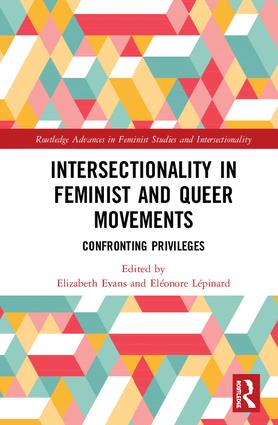This study looks back at a major feminist event: the Nordiskt Forum Malmö held in Malmö, Sweden, in 2014, and the 'counter'-festival, the Feministiskt Festival, which was held simultaneously but organised by a different set of actors. The Nordiskt Forum, as a major event in Scandinavia, encountered the usual issues of representation and inclusivity, and was thus criticised as overwhelmingly white and privileged because of its institutional sources of funding. On the contrary, the Feministiskt Festival portrayed itself as intersectional and inclusive and was free of charge thanks to the support of the city of Malmö. Here the discourse of intersectionality was used to challenge institutional privilege reproduced by the Nordiskt Forum. The authors ask whether the difference of generation may explain the diverging patterns of discourse and organisation of the two events with respect to intersectionality: with an older generation of feminists that can be labelled 'rights oriented' or state feminists focused on a single-axis perspective, and a younger generation located in the context of neoliberalism and conservativism, self-defining itself as practicing intersectional feminism and multiple-axes analysis.
Generational Conflict and the Politics of Inclusion in Two Feminist Events
Article written by Beatrice Halsaa, Pauline Stoltz and Christel Stormhøj, published in Intersectionality in Feminist and Queer Movements: Confronting Privileges (eds. Evans & Lépinard).

Published Jan. 14, 2020 1:25 PM
- Last modified Jan. 14, 2020 1:25 PM